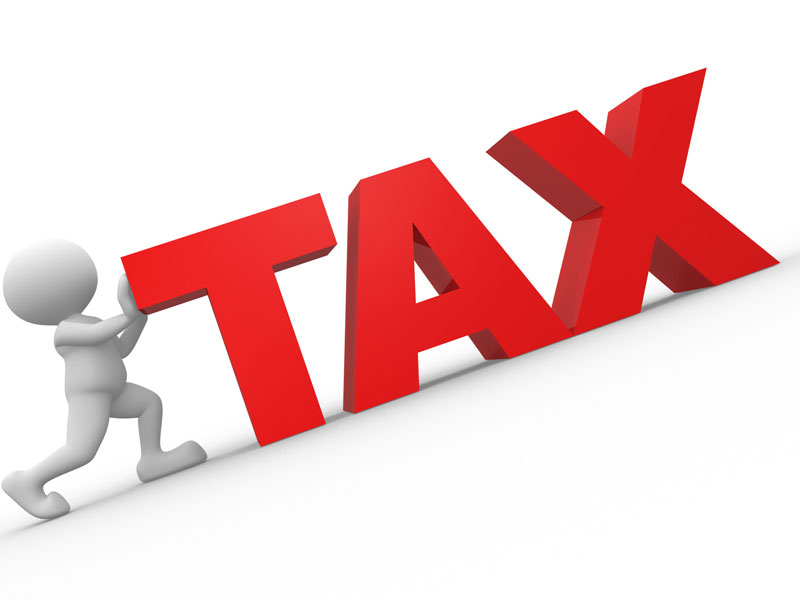Only about 700,000 out of 4.5 million taxable adults in Lagos are currently paying tax, the state Governor Babajide Sanwo-Olu disclosed last Tuesday. The governor reportedly revealed the number of taxpayers, which represents only 15.5 per cent of the taxable citizens, while answering questions at The Platform Nigeria, a yearly event organised by The Covenant Church Place in commemoration of Nigeria’s Independence anniversary.
The figure given by Governor Sanwo-Olu is abysmal for a state and people desirous of enjoying good infrastructure and other amenities that make life worthy.
However, before lumping all together as irresponsible citizens, which is what those who fail to fulfil the all-important civic duty of tax-paying are, some categories of Nigerians, who may not have been captured in the tax net, must be singled out for being overtaxed or levied, depending on how their contributions are called. The concerned citizens are commercial bus drivers, motorcycle/tricycle riders and petty hawkers.
What these informal sector operators of the economy pay every day they venture out for their daily bread will have a huge impact on governance if government eventually decides to beam its searchlight on how certain individuals fleece them in the guise of unionism. The Acts of Parliament setting up the National Union of Road Transport Workers (NURTW) and its twin, Road Transport Employers Association of Nigeria (RTEAN) and their affiliates did not empower the two unions to arrogate to themselves the power of tax or levy collections, which they have been wielding across the country over the years.
READ ALSO:For Nigerian airlines, the sky is no longer blue
By the laws, NURTW is only entitled to organise workers in corporate road transport business and collect monthly check-off dues from them, while RTEAN was intended to have responsibilities to workers in the employers’ employment. The scope of operations of the two unions was expanded by Second Republic politicians who associated RTEAN with the defunct Unity Party of Nigeria and sought to diminish its influence, while the NURTW favoured by the defunct ruling National Party of Nigeria was elevated and given leeway. The aberration of leaving the two bodies and their affiliates to operate beyond the laws is because of the electoral support and nuisance value their leaderships muster for politicians during elections.
More troubling is the fact that officials of the transport unions are in many parts of Lagos and beyond, collecting levies and dues daily from petty hawkers and issuing tickets on government behalf.
With the amounts levied on earnings by this category of Nigerians daily, it would be expecting too much to regard them as non-tax-paying.
Therefore, when the Lagos governor appealed for “more people to be in the tax net,” he must take cognisance of the ordinary citizens not considered in the net but already paying through their noses and into the wrong coffers.
The situation in Lagos, the nation’s commercial capital with regard to non-payment of tax is not different from the other states and a reflection of our warped federalism; A system in which the majority of private and corporate citizens evade taxes, yet expect government to provide good roads, adequate electricity, pipe-borne water, well-equipped hospitals and schools as well as other amenities. It should, however, be noted that it was not the way the country started or the legacy bequeathed to us by the colonial masters at Independence. Even before the advent of the White rulers, our traditional governance system relied on the payment of taxes for development purposes.
The neglect of tax revenue for execution of programmes in the public interest was one of the deficiencies of military rule. Instead of developing our tax culture, the soldiers who took over the affairs of the nation for 38 years only bothered about earnings from crude oil.
The duties every citizen from age 18 owes the country are stipulated in Section 24 of the 1999 Constitution, as amended. One of the duties is “to declare his income honestly to appropriate and lawful agencies and pay his tax promptly.”
Therefore, tax payment is not just a civic responsibility, but a compulsory one at that, which failing to comply with, makes a defaulter liable to be tried for a crime against the state.
Without tax revenue, governments are impotent, unable to fulfil their social contract with the people. And when the governments fail, anarchy rules the land.
It is to prevent governance failure and for the good of all most importantly that every citizen must pay tax.
While noting the need for the citizens to pay their taxes, we are also concerned about the fact that governments and public servants contribute more to tax evasion with unfriendly tax laws coupled with a faulty and corrupt tax administration system.
Apart from the category of citizens referenced earlier, many other individuals and corporate bodies are taxed beyond their earnings and discouraged from willingly and honestly fulfilling their tax obligations.
READ ALSO:Association of friends inducts Adebutu as grand patron ….as Daniel, Ayangburen become members
It is obvious that many businesses are failing and shutting down because of the prevailing stifling economic environment, but the tax system pays scant attention to this reality.
We emphasise that beyond calling on the citizens to pay taxes, the governments should discourage complacency and default by making the payment humane and easy.
The governments at all levels also have the responsibility to use tax revenue judiciously for our common good. No one will be willing to pay tax, knowing that the revenue would end up being looted by some public officers.
In our best interest, citizens must pay tax; the governments must make the payment reasonable and also be judicious and accountable with the handling of public funds.
|
|


